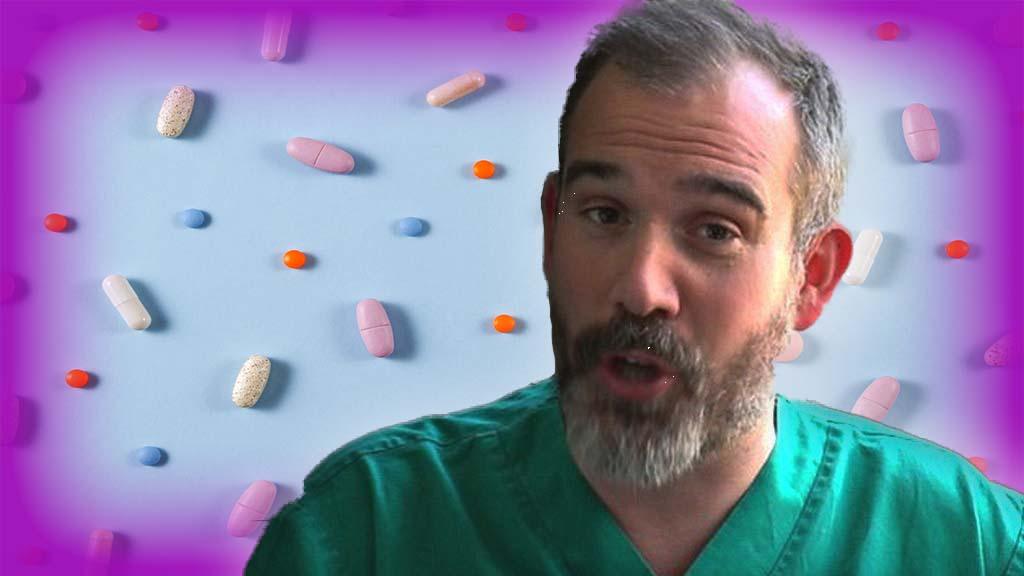Coronavirus lockdown: Prime Minister Boris Johnson to update nation
- Published
- comments
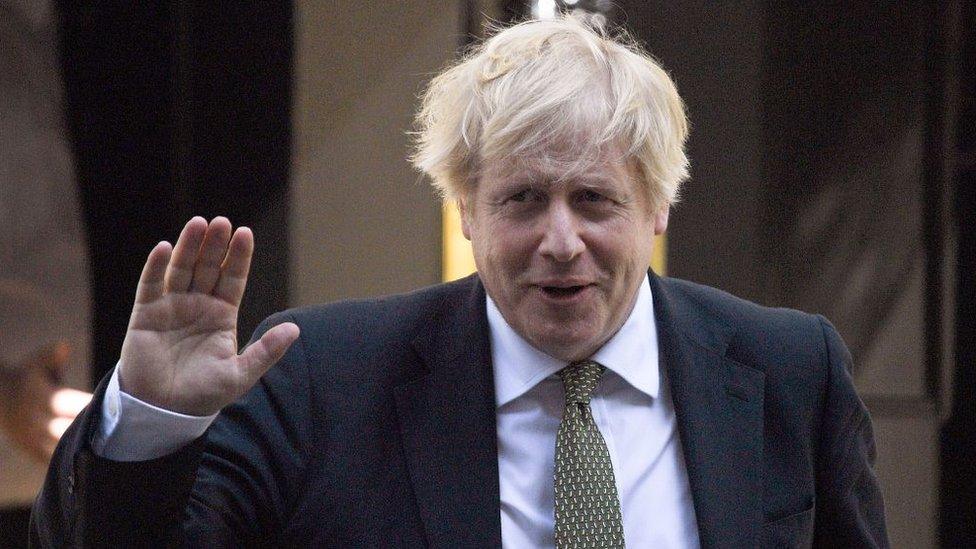
Prime Minister Boris Johnson will update the nation on Sunday evening to outline plans for the next stage of the lockdown in England.
He will give a televised speech at 7pm.
The country has been in lockdown for more than six weeks, with the rules first put in place on 23 March.
It's after he met with his senior members of government, or cabinet, on Thursday to review UK lockdown rules.
Ministers have said we should not expect any "big changes".
On Sunday afternoon, Mr Johnson posted the government's updated advice on social media, which was to "Stay alert, control the virus, save lives".
The advice says we should still remain at home as much as possible and that we should continue to keep our distance from people outside our households.
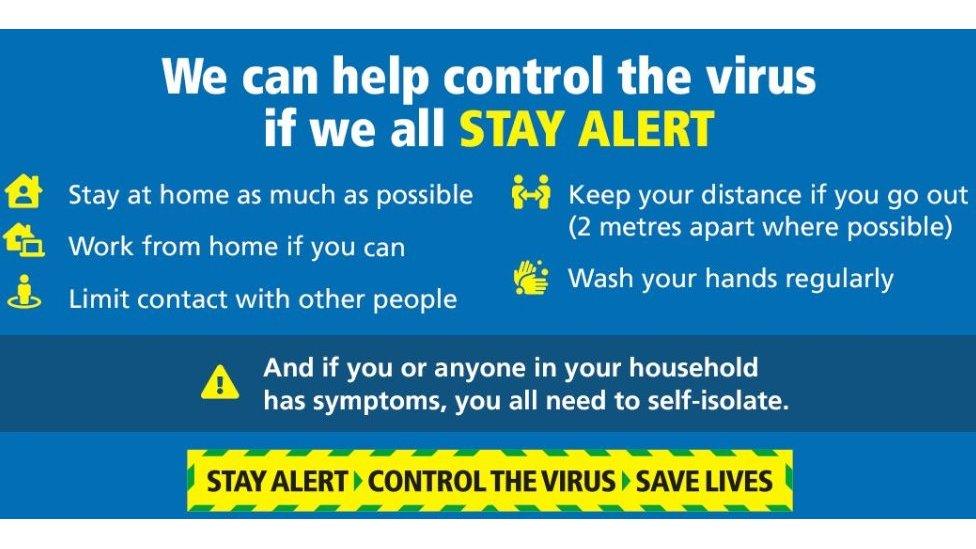
It is thought the updated advice is partly because ministers are keen to 'restart the economy' - which means getting people back to work and doing things like going shopping.
What about Scotland, Wales and Northern Ireland?
Scotland's First Minister Nicola Sturgeon said on Thursday the lockdown there would be extended by another three weeks.
She said it was too soon to make any meaningful changes without risking an increase in the number of coronavirus cases again.
But she did say "we can make changes to regulations before then if the evidence suggests it is safe to do so".
Wales' First Minister Mark Drakeford has announced "modest" changes to the lockdown there - people will be able to exercise outside more than once a day, for example. But most restrictions are in place until at least 28 May.
Northern Ireland has also said it will continue the lockdown until 28 May, when it will be reviewed again,
By law, the coronavirus restrictions must be reviewed every three weeks - Thursday 7 May was the latest deadline.
But the prime minister said on Thursday that he was saving news of any changes in England for his statement at the weekend.
What could change?
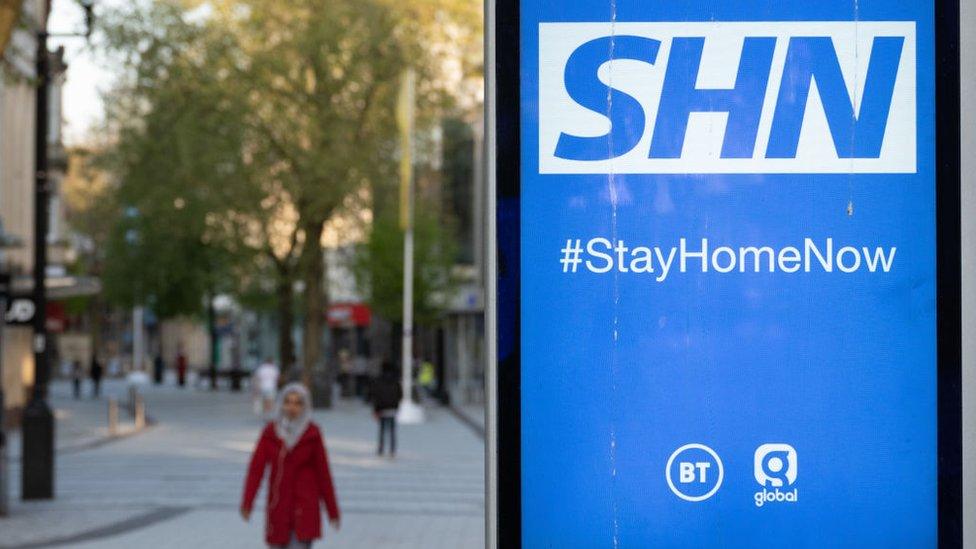
One new rule could be that anyone arriving into UK airports from any country apart from the Republic of Ireland, will have to quarantine themselves for 14 days, whether they are showing symptoms of the coronavirus or not.
Although much of the lockdown is expected to stay in place, Mr Johnson has suggested some measures could start being eased on Monday - Downing Street has said this will only be a "very limited" easing of the social distancing rules though.
Mr Johnson said the government would use "maximum caution" as it moves towards a relaxation of lockdown measures, with the government insisting that "at every step" they are making decisions based on science and data.
Another change could be allowing people to spend more time outside.
It is thought Mr Johnson could launch a new alert system for the virus, alongside the new slogan, telling people to "stay alert, control the virus, save lives".
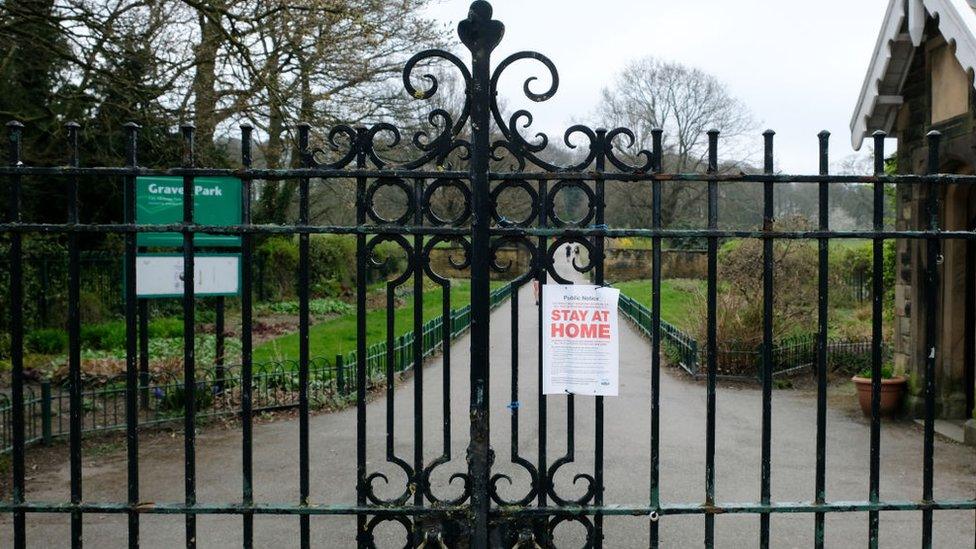
Parks and outside spaces, like this one in Sheffield, could reopen again
BBC's Newsnight's political editor Nicholas Watt, has suggested there might be "a big focus on the outside" - for example allowing more exercise outside or more work on construction sites.
He also thinks Mr Johnson might suggest that face coverings - not medical face masks - could be used by the public in some circumstances.
Wales and have announced that garden centres will reopen, but will do so with strict social distancing rules in place. England could be set to follow the same course of action.
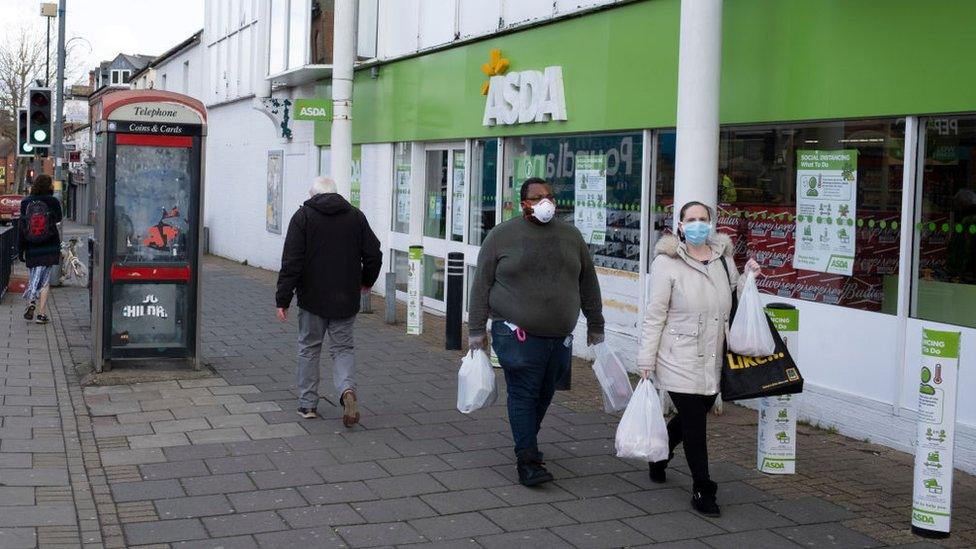
Supermarkets and pharmacies are some of the only shops allowed to stay open during lockdown
When it comes to things like shopping and going back to school, it's hard to know what the government might say.
Shopping
High Street fashion shops and others closed during lockdown are waiting to hear how they might reopen.
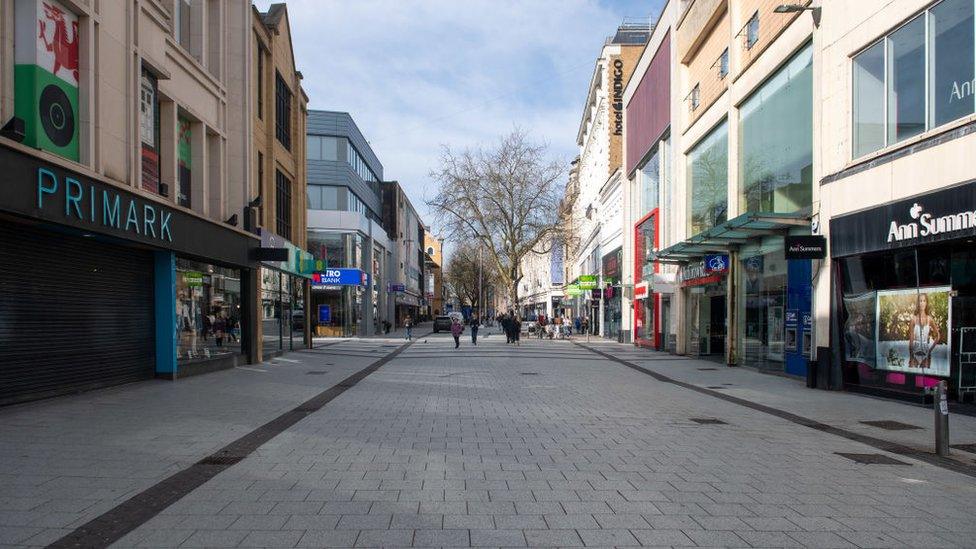
Shopping streets have been largely empty during lockdown
Some shops might not reopen at all due to financial problems caused by the lockdown.
Changing rooms could be closed and customers encouraged to shop alone, according to The British Retail Consortium, which looks after UK retailers.
School
It's been suggested that children in England, Scotland and Wales may be able to make a "phased return" to schools, with only certain year groups attending.
There would likely be special measures to keep pupils and teachers safe, for example limiting class sizes, groups of pupils attending on different days, redesigned classrooms and staggered break times to keep contact to a minimum.
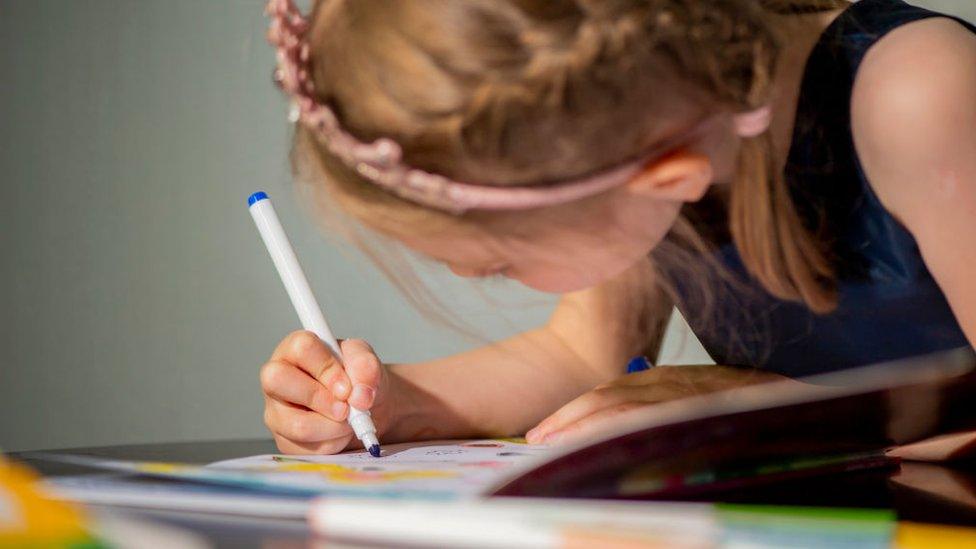
How long will home learning go on for?
Earlier this week groups representing teachers said they didn't want schools to return until it was safe to do so, which would mean having things like social distancing rules and good hygiene routines in place, or could even mean some school having have special protective equipment to wear.
In Northern Ireland Minister for Education, Peter Weir has said there is "no planned date for the reopening of schools", with schools in the Republic of Ireland staying shut until September. And Wales' First Minister Mark Drakeford said on Saturday that schools in Wales would not be reopening to the majority of pupils in June.
Seeing friends and family
The UK's chief medical adviser, Chris Whitty, has warned close contact with vulnerable family members - the elderly and those with existing health problems - may pose a risk to them.

Lots of us have been celebrating special occasions like birthdays using video calls
But Health Secretary Matt Hancock said he hoped the question of grandparents and children being reunited could be resolved "as soon as possible".
The Scottish government has suggested people would only mix with their own household group, but is also looking at whether a small group of friends or relatives could meet in "a group or 'bubble'".
Transport
Even though there's likely to be fewer people using trains, trams and buses, keeping passengers apart will be difficult.
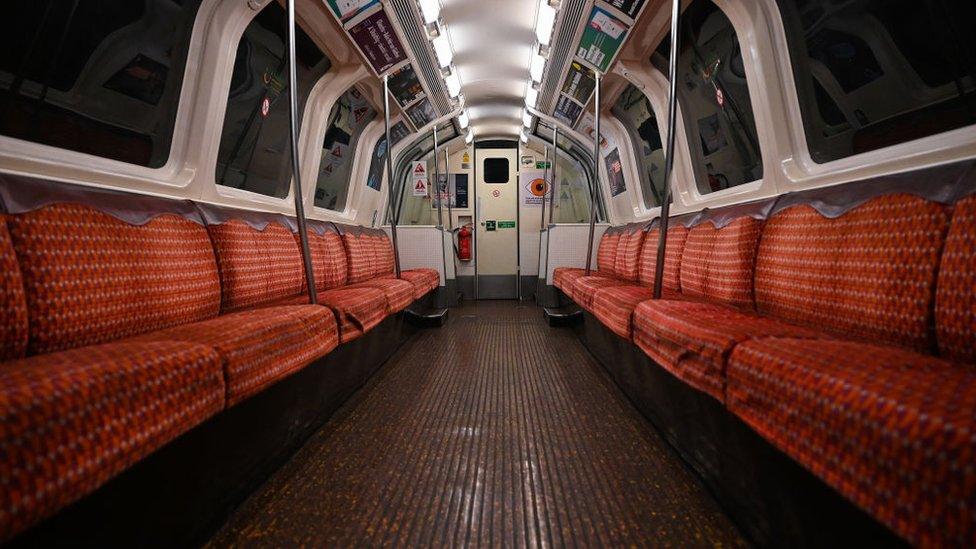
Carriages on the the Glasgow subway were often empty during lockdown, with people staying at home
Transport Secretary Grant Shapps says businesses may have to arrange for staff to work different hours to normal, to stop rush-hour crowds. He has already said the government will be spending more money to try to persuade more people to walk or cycle.
- Published4 May 2020

- Published6 May 2020

- Published5 May 2020
